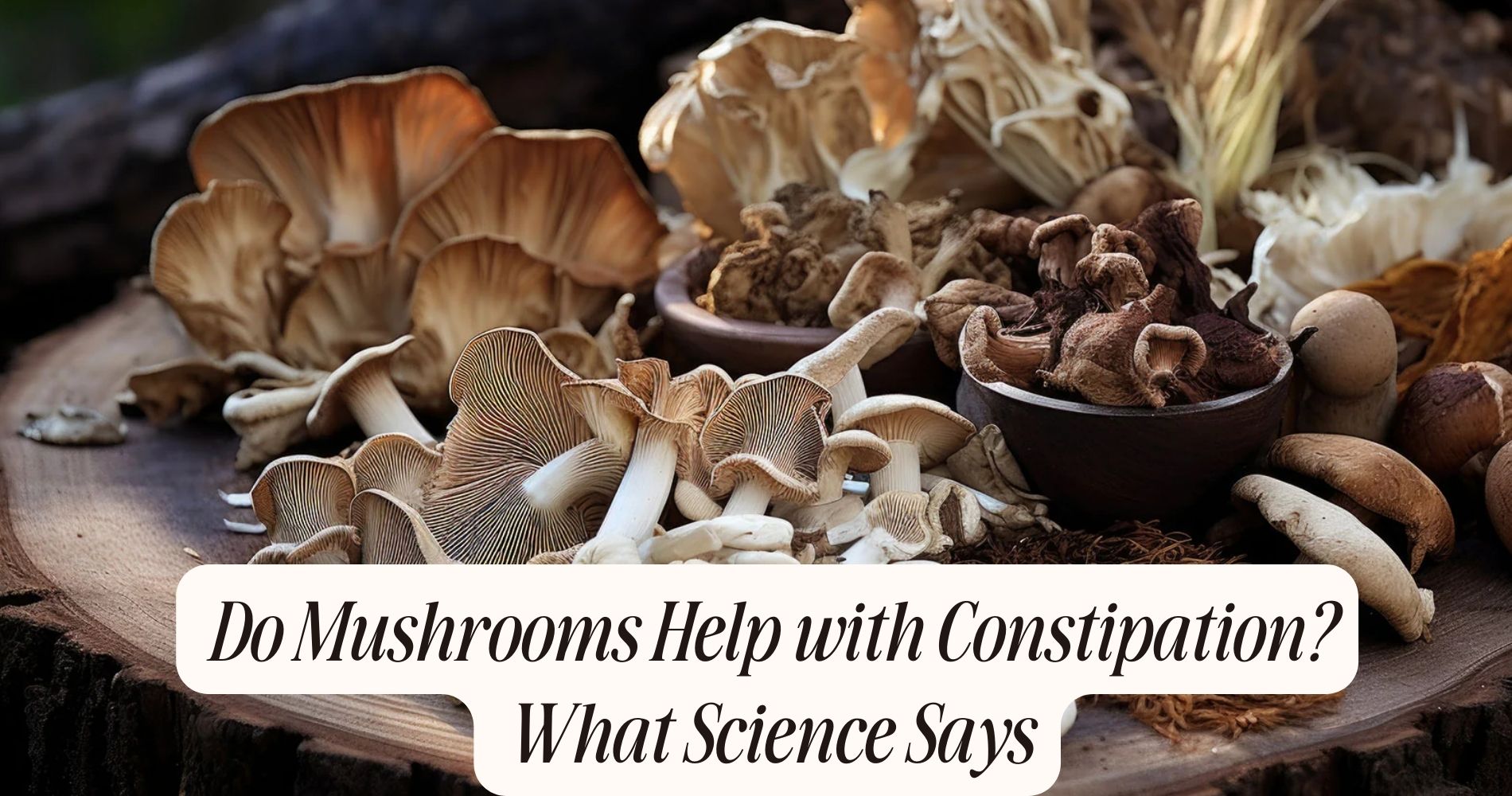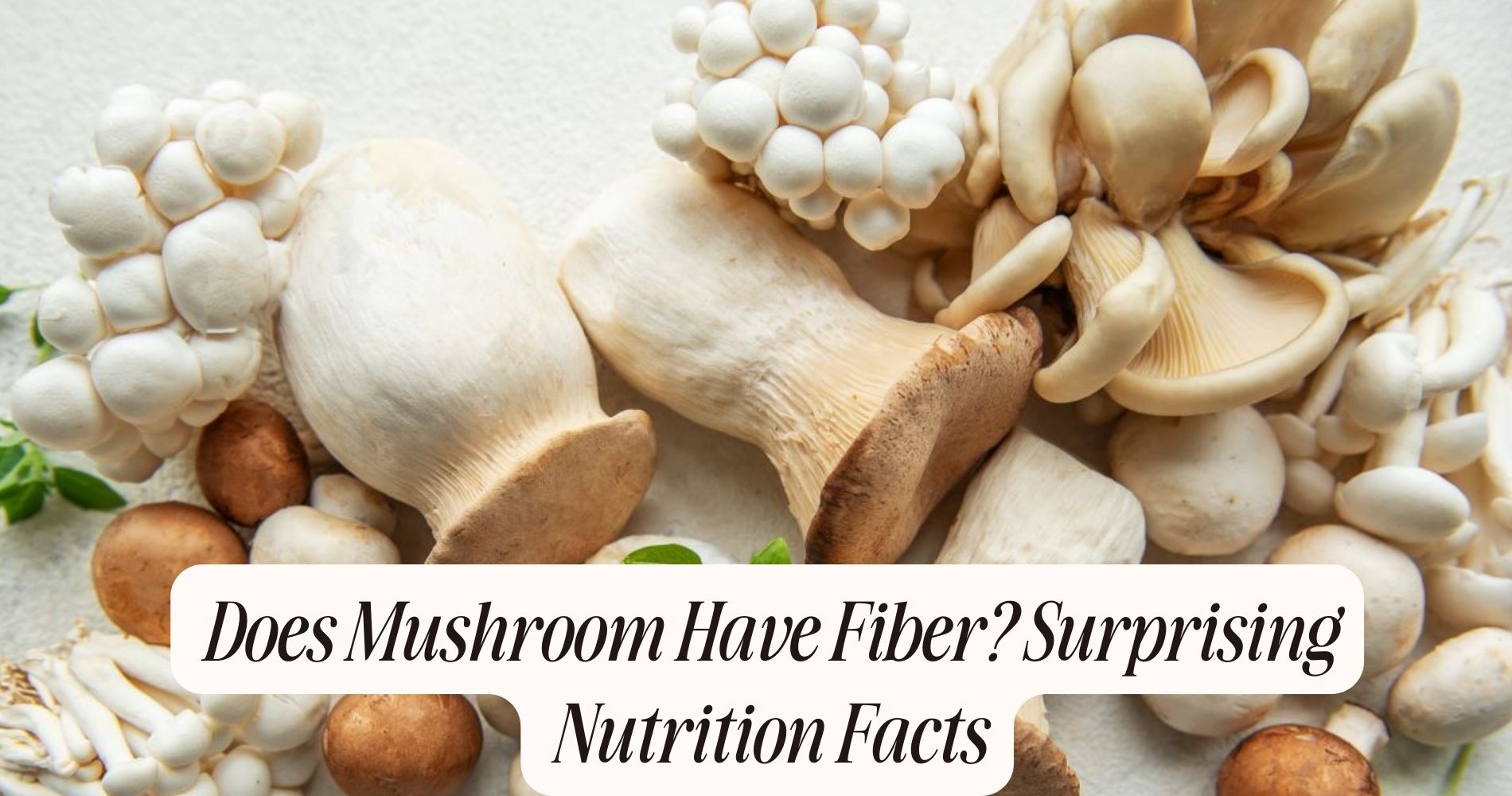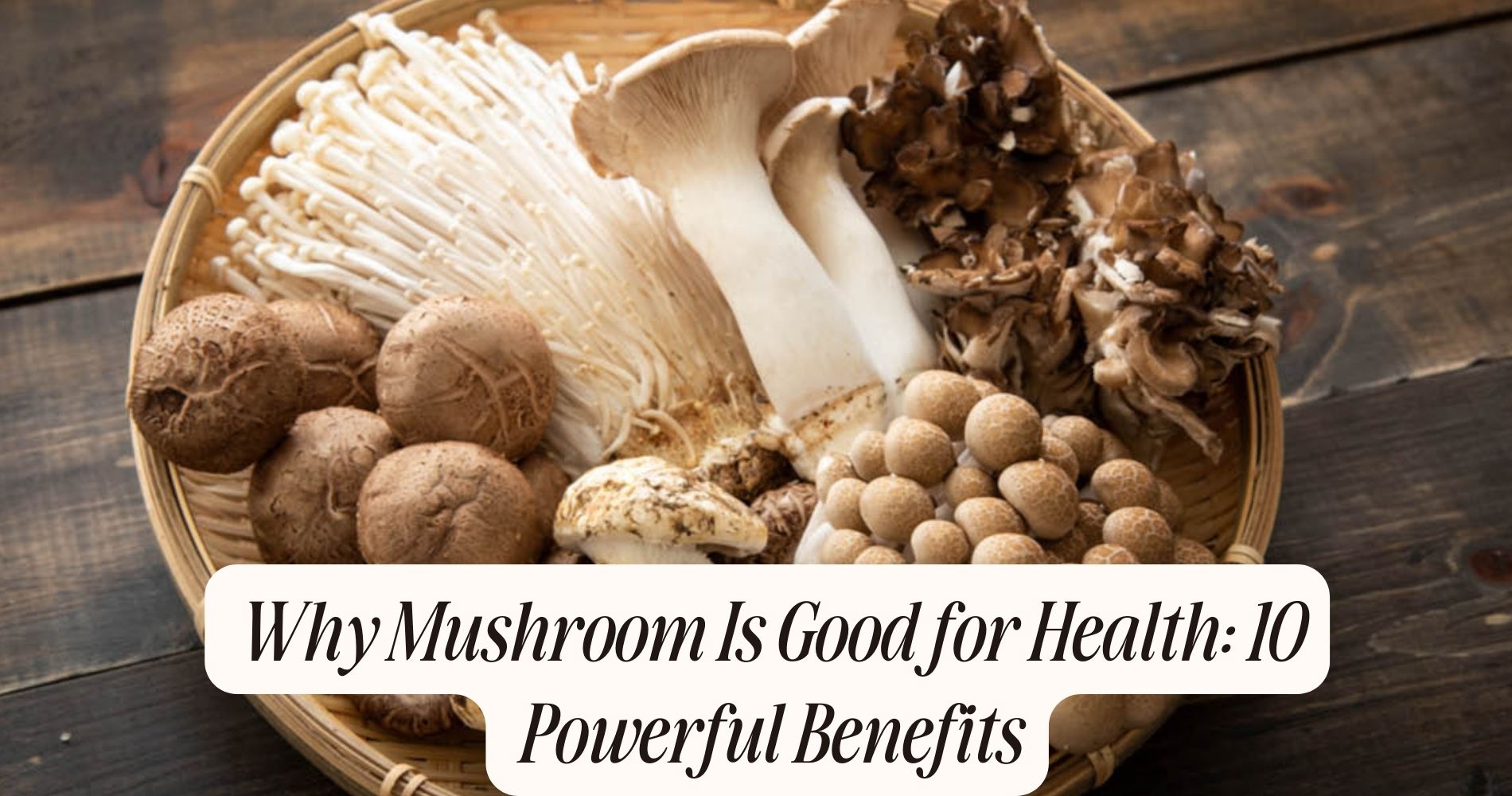
Do Mushrooms Help with Constipation? What Science Says
Do mushrooms help with constipation? Mushrooms can indeed help with constipation. They are low in calories and packed with fiber, crucial for regulating bowel movements. Both soluble and insoluble fibers in mushrooms contribute to easing stool passage and promoting regularity. Furthermore, mushroom bioactive compounds and prebiotic fibers support a balanced gut microbiome, significant for healthy digestion. Including mushrooms in your diet multiple times a week can be strategic for digestive health. Uncover more about the nutritional power of mushrooms and their role in gut health.
The Nutritional Profile of Mushrooms
Mushrooms, a versatile and nutritious food, offer a remarkable array of health benefits due to their rich nutritional profile.
You'll find a wide range of mushroom varieties, such as shiitake, portobello, and cremini, each contributing unique nutritional benefits. These fungi are low in calories and fat, making them an excellent addition to your diet.

They're rich in essential nutrients like B vitamins, which support energy metabolism, and selenium, an antioxidant that helps protect your cells from damage. Mushrooms also provide important minerals like potassium, aiding in blood pressure regulation.
Additionally, they're a source of vitamin D, especially when exposed to sunlight, which supports bone health. Incorporating different mushroom varieties into your meals can enhance both flavor and nutrition.
Fiber Content and Its Impact on Digestion
While often overlooked, the fiber content in mushrooms plays a significant role in promoting healthy digestion. Mushrooms contain both soluble and insoluble fiber types, which collectively aid in digestive processes.
Soluble fiber attracts water, forming a gel-like substance that can help soften stool, making it easier to pass. Insoluble fiber, on the other hand, adds bulk to stool, which can enhance bowel regularity. These fiber types work synergistically to promote gut motility and prevent constipation.
Moreover, fiber can influence the activity of digestive enzymes. By slowing down digestion, fiber allows enzymes more time to break down nutrients, optimizing nutrient absorption.
Including mushrooms in your diet provides a balanced fiber intake, potentially alleviating constipation and supporting overall digestive health.
Bioactive Compounds in Mushrooms
Despite being a humble food source, mushrooms boast a diverse array of bioactive compounds that contribute to their health benefits.
These compounds, including polysaccharides, phenolic acids, and terpenoids, exhibit bioactive properties that can support your overall well-being. Polysaccharides in mushrooms, such as beta-glucans, are known for their immunomodulatory and anti-inflammatory effects.

Meanwhile, phenolic acids help combat oxidative stress by serving as antioxidants. Terpenoids, another group of compounds found in mushrooms, have been linked to antimicrobial and anti-inflammatory activities.
Scientific Studies on Mushrooms and Gut Health
The bioactive compounds in mushrooms not only contribute to their health benefits but also play a significant role in gut health.
Scientific studies indicate that various mushroom varieties, like shiitake and maitake, positively affect the gut microbiome. These mushrooms contain prebiotic fibers that promote the growth of beneficial bacteria, enhancing overall gut function.
Research shows that consuming these fungi can lead to increased microbial diversity, a key factor in maintaining a healthy digestive system. The gut microbiome's balance is essential for digestion and preventing constipation.
Incorporating Mushrooms Into Your Diet for Digestive Benefits
When looking to enhance your digestive health, incorporating mushrooms into your diet can be a strategic choice. Various mushroom varieties, such as shiitake, oyster, and button, are rich in fiber, which is vital for maintaining regular bowel movements.
Fiber aids in adding bulk to stool and promoting gut motility, potentially alleviating constipation. To optimize these benefits, consider dietary recommendations that include mushrooms in your meals multiple times a week.

You might sauté them as a side dish, add them to salads, or include them in soups and stews. Additionally, mushrooms are low in calories and high in essential nutrients, making them an excellent choice for a balanced diet.
Supercharge Your Wellness with SUPER MUSHROOM GUMMIES
Looking for an easy and delicious way to enjoy the benefits of mushrooms? SUPER MUSHROOM GUMMIES by Well Gummies make it effortless! Packed with 10 powerful mushroom varieties, these convenient chewable gummies provide natural energy, sharper focus, and immune support—all without the hassle of cooking or prepping. Enjoy the taste of fresh wild berries while fueling your body and mind. Plus, no jitters or crashes, just sustained wellness throughout your day. Try them today and experience the functional power of mushrooms in the simplest way!
Frequently Asked Questions
Are There Specific Mushroom Varieties Better for Constipation Relief?
You're wondering about specific mushroom varieties for constipation relief. Shiitake benefits your digestion, thanks to fiber and polysaccharides. Oyster mushrooms also support gut health with their fiber content. Incorporate them into your diet to potentially ease constipation.
Can Mushrooms Cause Digestive Issues if Consumed in Excess?
If you consume mushrooms in excess, it can lead to digestive issues. Different mushroom types have varying digestive effects, and overconsumption might cause upset stomach, bloating, or gas. Moderation is key to avoiding discomfort.
Do Cooked Mushrooms Retain Their Digestive Benefits?
When you cook mushrooms, they retain their fiber content, which aids digestion. However, different cooking methods can affect their texture and nutrient levels. Steaming or sautéing mushrooms helps preserve their digestive benefits, making them effective for gut health.
Are There Any Contraindications for Consuming Mushrooms for Digestion?
When considering mushrooms for digestion, guarantee you don't have mushroom allergies. Some mushrooms contain digestive enzymes that may benefit digestion, but always consult a healthcare professional to avoid potential contraindications. Prioritize your health and informed choices.
How Do Mushrooms Compare to Other Foods for Promoting Regular Bowel Movements?
Mushrooms provide moderate fiber content, promoting gut health, but they're not as high as some other foods like beans or whole grains. Incorporating diverse fiber sources can more effectively support regular bowel movements and overall digestive health.
Conclusion
Incorporating mushrooms into your diet can offer digestive benefits, thanks to their fiber content and bioactive compounds. Scientific studies suggest that mushrooms may promote gut health and alleviate constipation. Their rich nutrient profile supports digestion by enhancing gut flora and facilitating smoother bowel movements. To harness these benefits, consider adding mushrooms to your meals regularly. Remember, while mushrooms can aid digestion, they're most effective as part of a balanced diet. Always consult with a healthcare professional for personalized advice.




